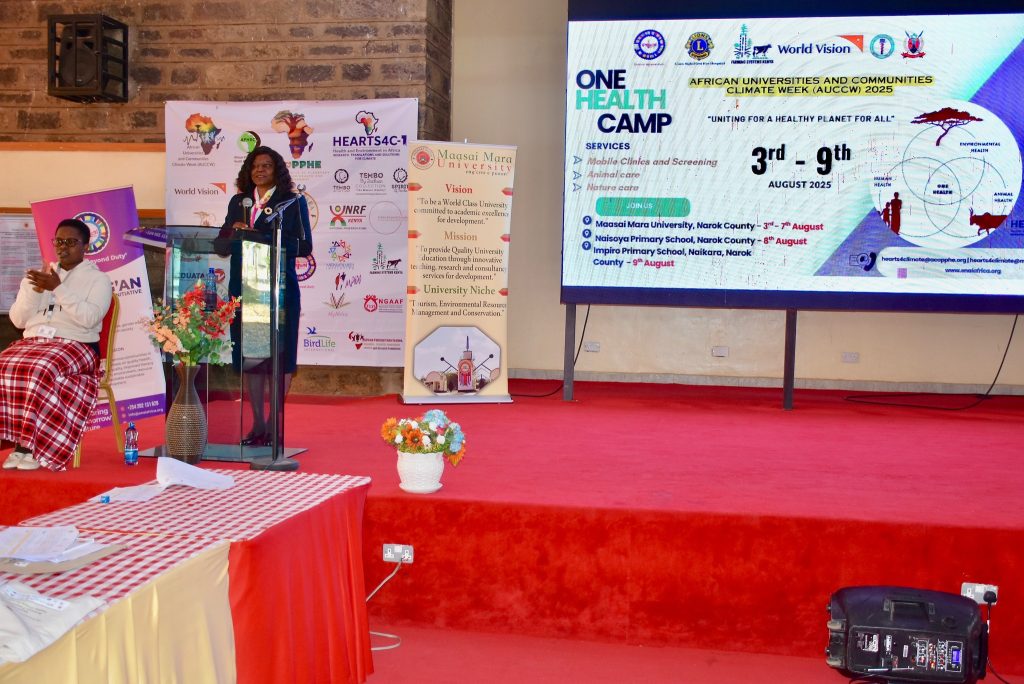HEARTS4CLIMATE INTERNATIONAL CONFERENCE, MAASAI MARA UNIVERSITY – DAY THREE
“ The Vice Chancellor of Maasai Mara University, Prof. Peninah Aloo-Obudho, graced the conference for the official launch. ”
The 1st Hearts4Climate International Conference entered its third day with renewed momentum and a call to action. The Vice Chancellor of Maasai Mara University, Prof. Peninah Aloo-Obudho, graced the conference for the official launch.
Prof. Aloo-Obudho warmly welcomed all participants and extended heartfelt appreciation to the diverse organisations and partners represented. Citing the submission of over 160 abstracts. She noted this as a positive indicator of increased engagement and global commitment to climate action. Underscoring the conference theme, “Uniting for a Healthy Climate,” the Vice Chancellor tied the discussion to the university’s strategic focus areas -the niche and the 5Ms – and challenged participants to go beyond academic dialogue and generate tangible, solution-oriented outcomes.
In her remarks, she emphasised the importance of integrating University research with community engagement, especially through collaborative educational programs. Drawing inspiration from her recent meeting with the PS for Innovation, she highlighted Kenya’s low standing in patent research, urging scholars to pursue innovations that can be patented, commercialised, and generate employment for the youth. Prof. Aloo-Obudho also advocated for impactful research that directly addresses societal needs, not just for publication, but for real transformation.
In line with this, she encouraged networking and knowledge-sharing among participants to catalyse solution-driven partnerships. She invited international delegates to explore the rich biodiversity of the Maasai Mara ecosystem, while stressing the urgency of preserving habitats, medicinal plants, and cultural heritage. A passionate conservationist herself, she shared her commitment to environmental restoration through tree nurseries in local schools, setting a bold example of grassroots impact.
The day’s programme featured a compelling keynote presentation from Dr. Kimaren Ole Riamit, Executive Director of Indigenous Livelihoods Enhancement Partners (ILEPA), who shed light on indigenous-led climate action and the role of local knowledge in safeguarding ecological balance. He spoke passionately about enhancing the livelihoods of indigenous communities and integrating traditional ecological wisdom into contemporary climate strategies.
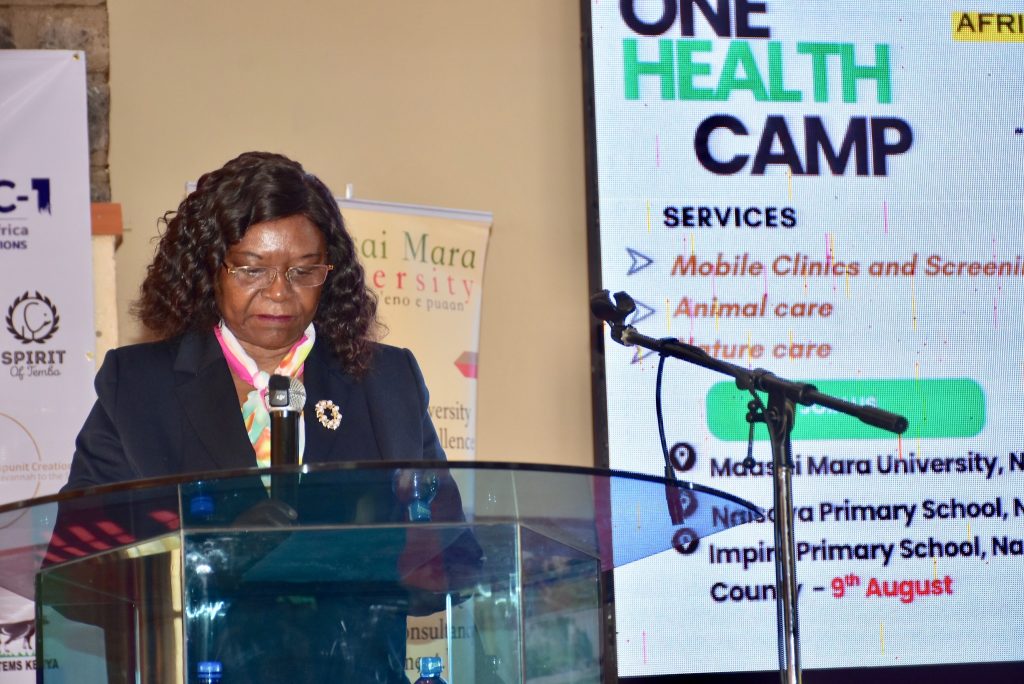
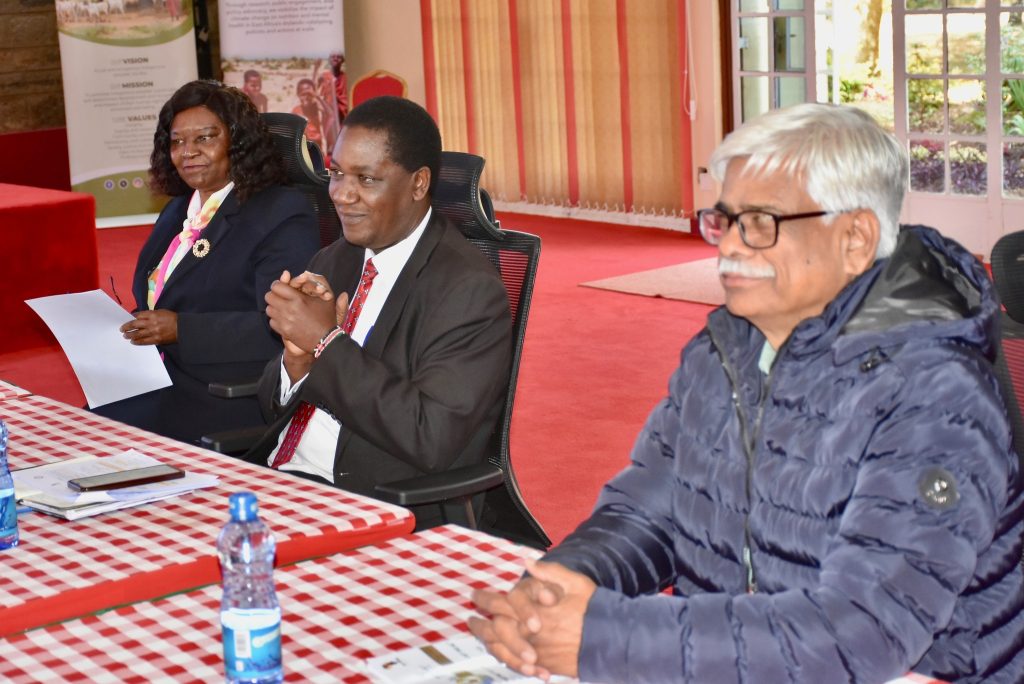
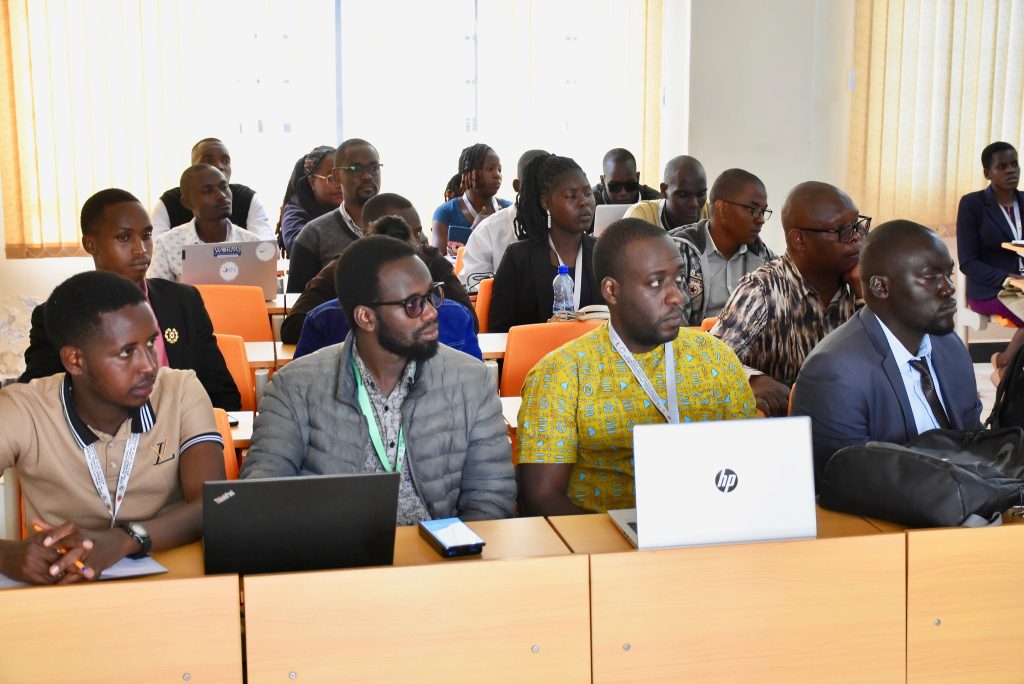
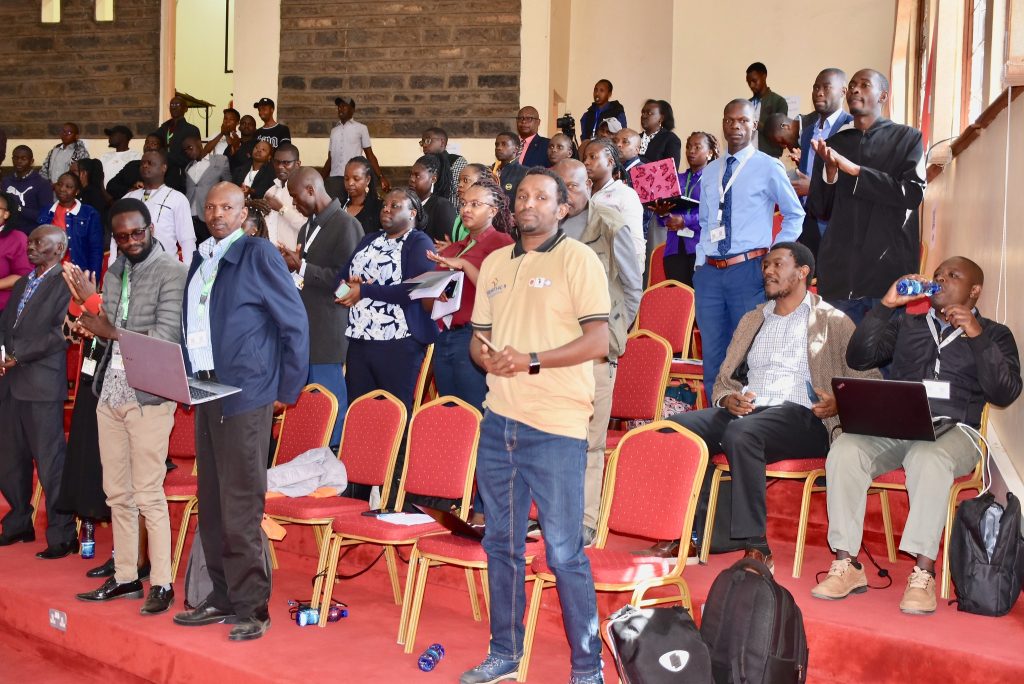
Benjamin Kinyili, a representative from the Kenya Forest Service, also delivered an informative session, reinforcing the importance of forestry in climate mitigation, ecosystem resilience, and national conservation efforts. He emphasised the role of youth in reforestation campaigns and policy implementation.
As in the previous days, the health camp remained active, offering medical checkups, SHA registration, and essential health services to both delegates and the local community. Breakout sessions, poster presentations, and exhibitions continued across various venues, facilitating dynamic exchange of ideas, innovations, and best practices among participants. Throughout the day, the campus buzzed with vibrant interaction, reflection, and collective resolve. The diversity of voices from academia to community based organisations reaffirmed the goal of the conference: to unite stakeholders around a shared vision of a sustainable, healthier planet for all.
Day Three closed on an optimistic note, with many participants expressing eagerness to build upon the day’s insights and translate them into concrete initiatives.
